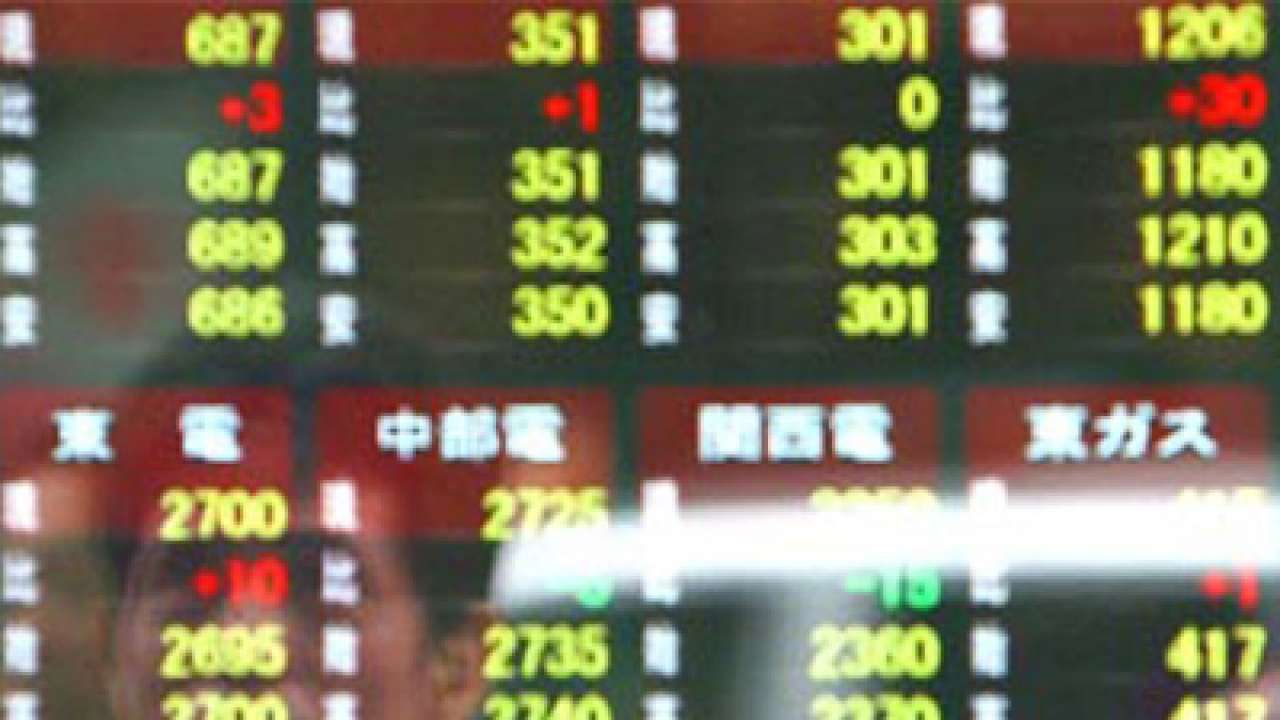
Asian stocks crept up on Thursday following another steady performance by Wall Street shares which hovered near record highs, while the euro clung to modest gains after rebounding from 13-month lows.
The Australian dollar rose to a three-week high versus the U.S. dollar after second quarter business investment data beat forecasts.
MSCI's broadest index of Asia-Pacific shares outside Japan rose 0.2 percent.
Tokyo's Nikkei shed 0.5 percent, weighed by overnight gains in the yen.
The S&P 500 crept up to another record closing high overnight, with U.S. stocks supported by brighter prospects for the economy.
The euro received some reprieve after three sessions of losses as feverish speculation of an imminent round of easing by the European Central Bank was tempered for now.
Sources told Reuters on Wednesday that the ECB is unlikely to take new policy action next week unless inflation figures on Friday show the euro zone sinking significantly towards deflation.
The euro gained 0.2 percent to $1.3216, creeping up from a one-year low of $1.3152 plumbed on Wednesday.
The markets looked to the German inflation data due later in the session, which foreshadow the closely watched euro zone inflation figures due Friday, to see whether the euro can extend its rebound or continue probing fresh lows.
"If the German CPI underlines strengthening deflation, it will fuel caution towards the euro zone consumer data due tomorrow and add selling pressure on the euro," said Junichi Ishikawa, a market strategist at IG Securities in Tokyo.
Euro zone inflation figures on Friday are expected to show the annual rate dipping to 0.3 percent in August from 0.4 percent.
The dollar slipped 0.1 percent to 103.785 yen, having pulled back from a seven-month peak of 104.49 struck at the start of the week.
The greenback has so far failed to build a steady foothold above 104 yen, partly due to persistently low U.S. yields.
U.S. Treasuries rallied overnight, driving yields lower, as European government bond yields continued to probe record lows and month-end buying helped send 30-year Treasury yields to their lowest levels in over a year.
The Australian dollar gained in response to stronger-than-expected second quarter business investment which leant hope the antipodean country's economy could weather an ongoing pullback in the once-booming mining sector.
The Aussie rose about a quarter of a cent to an intraday peak of $0.9373, its highest in three weeks.
"There are two parts of the growth transition, a pick-up in residential construction, which has been confirmed ... and a pick-up in the non-mining capex side of things, and that's where the big question mark was. These numbers today suggest prospects in that area are looking quite encouraging," said Michael Blyth, chief economist at the Commonwealth Bank of Australia.
In commodities, U.S. crude oil dipped after choppy trading overnight following a report that showed declining U.S. gasoline demand.
U.S. crude dipped 2 cents to $93.86 a barrel with the market looking to U.S. economic data due later in the session to gauge the outlook for demand in the world's largest oil consumer.
Spot gold edged up as a lower dollar and lingering geopolitical tensions helped offset selling pressure from bullish U.S. equities.
Spot gold gained 0.3 percent to $1,286.01 an ounce.